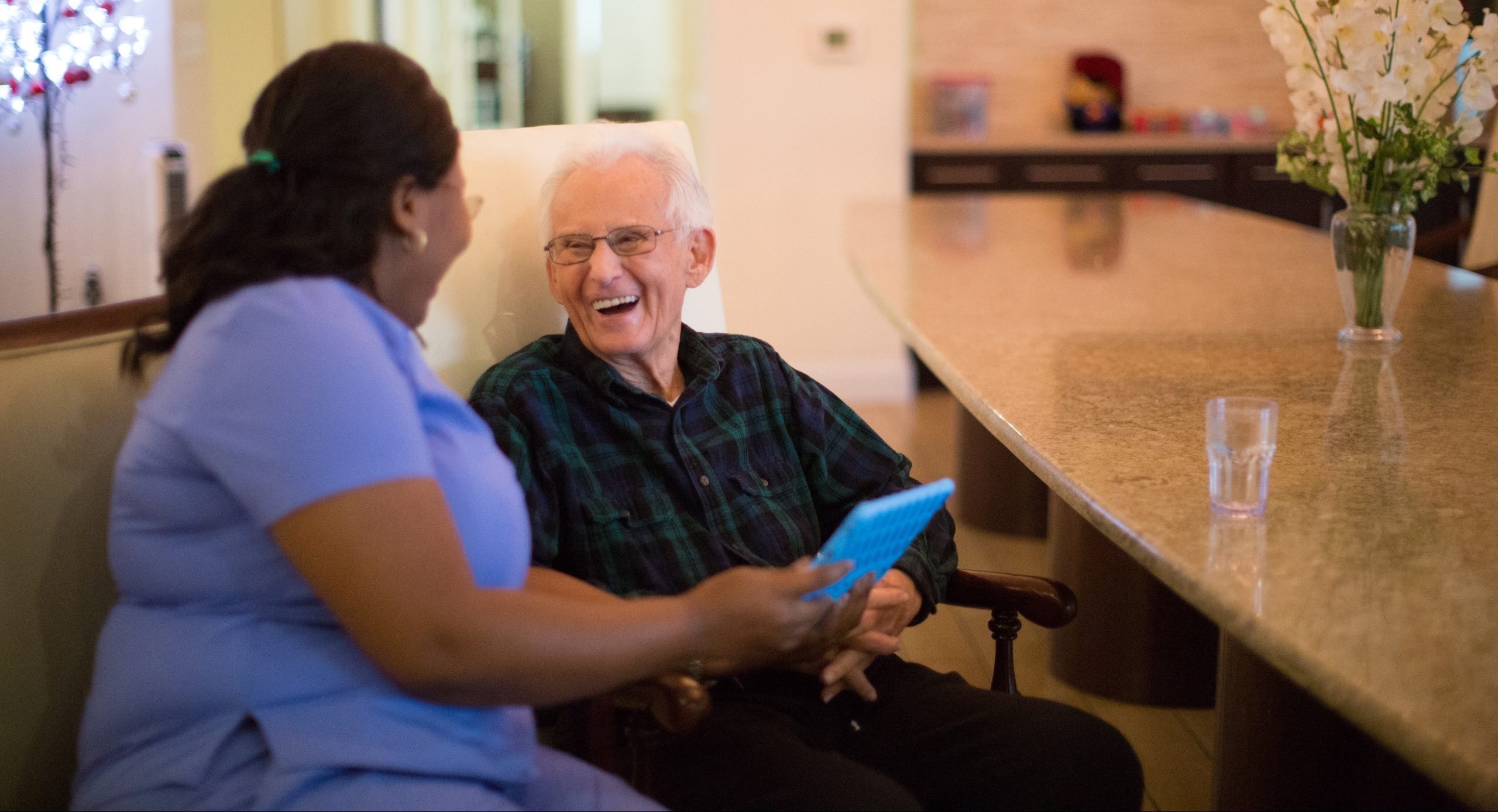How to know when assisted living or memory care is the right next step

Back to physical health resource hub
June is Alzheimer’s and Brain Awareness Month. It’s a special month that highlights Alzheimer’s disease, recognizes those living with the disease (or another form of dementia) and their loved ones who support them. There is no cure for Alzheimer’s and right now, more than six million Americans are living with the Alzheimer’s disease or another form of dementia. According to the Alzheimer’s Association, 72% are 75 years old or older and 80% are cared for at home by loved ones.
The CDC states that around 16 million Americans are taking care of a loved one at home. If you are one of the 16 million that are taking care of a loved one with Alzheimer’s disease or another form of dementia, it is critical to make sure you are caring for yourself as well. Addressing your mental, physical and emotional health needs will help you avoid caregiver fatigue and better care for your loved one.
What if the care of your loved one has exceeded your capabilities or 24/7 care is now needed?
It’s also possible that you would like to return to the parent-child dynamic you once had with your loved one. Assisted living and memory care may be the next step to consider for your loved one’s care and progression through life. Professionals in assisted living or memory care are trained specifically in how to care and manage someone with dementia.
So how do you know where to place mom or dad? How do you find a place that creates a balance of maintaining health, encouraging realistic independence and promoting a feeling of belonging while keeping loved ones as safe as possible? What do you look for in an assisted living or memory care?
Due to the nature of dementia and the toll it takes on that individual, you only want to make this decision once so it needs to be the right place.
Here are some questions to consider when touring a community:
- How do the other residents look?
- Are they clean and wearing appropriate clothing?
- Are they happy?
- Are there any odors or lingering smells?
- Are the common areas and rooms clean and free of clutter?
Additional questions to consider about a community include:
- What ongoing training does the facility provide to staff?
- What type of assisted living facility license does the community hold? There is a Standard ALF license, Limited Nursing Services (LNS) license and Extended Congregate Care (ECC). Each one varies in what they are able to do, according to the state of Florida, with your loved one. This becomes important if your loved one has declining health, but their ALF has only a Standard ALF license. This would force you to move your loved one to a community with a higher license of care.
- Is there longevity with staff? Do they staff Certified Nursing Assistants (CNA) or Home Health Aides/personal care staff? CNA’s are regulated and certified by the State of Florida and require continuing education classes while Home Health Aides do not have that same level of regulation.
- Did the community receive a positive state survey from Florida’s Agency of Healthcare Administration (ACHA)? You can find the results of those surveys on the Florida AHCA website.
When an individual moves into a community, whether it’s assisted living or memory care, that community should have a purpose to connect with your loved one with respect and dignity. Your loved one should maintain individuality and have individual needs nurtured. This step in someone’s life can seem overwhelming, but by doing research and finding a community that fits your needs, you can have the confidence that your loved one is receiving the best possible care.


